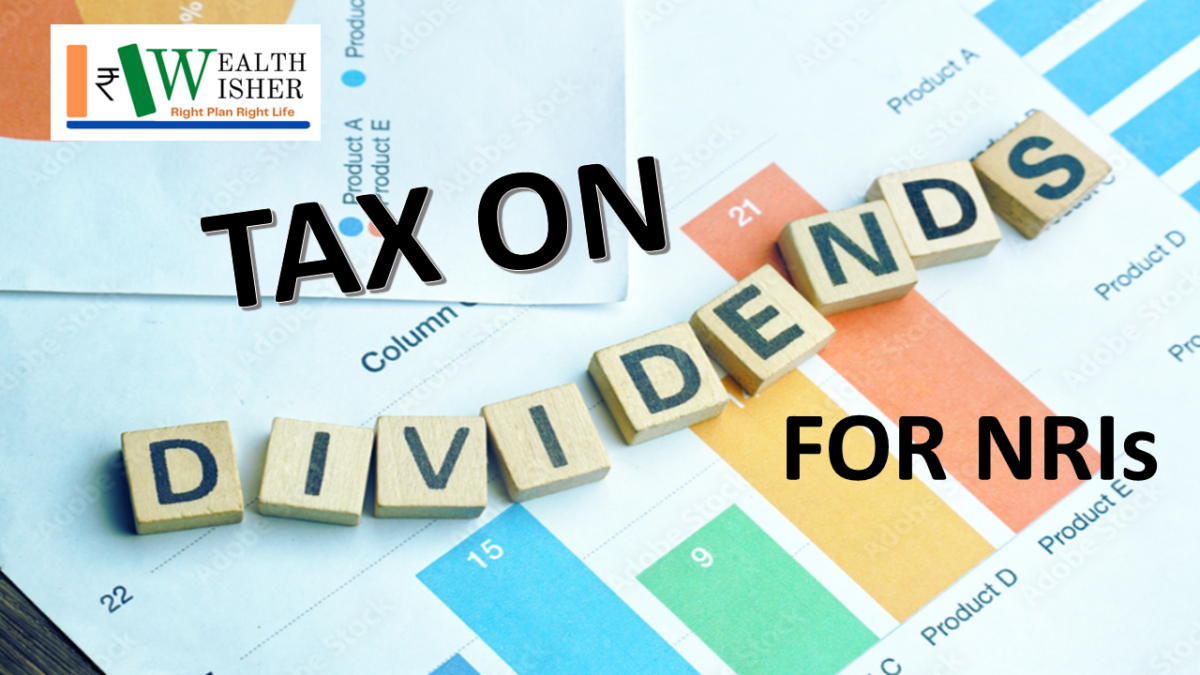Companies and mutual funds give dividends. Companies distribute dividends as a reward to shareholders to encourage them to stay invested. Dividends, as per the Dividend Discount Model (DDM), are an important metric for determining the valuation and, therefore, the company’s share price. Here are details on Tax on Dividends for NRIs.
There is a significant difference between dividends from these two sources:
- Company dividends come from profits.
- Mutual fund dividends come from cash held in the fund.
Investors should avoid investing in mutual funds that give dividends (IDCW funds) unless they have a strong reason not to, as taxes on capital gains are either lower or allow deferral.
When Did Dividends Become Taxable in India?
Dividends became taxable in India at the slab rates of the investor from the Assessment Year 2021-22 onwards. This change was implemented in the Finance Act of 2020, where the Dividend Distribution Tax (DDT) was abolished, and the responsibility of paying tax on dividends was shifted to the shareholders (stocks) and unitholders (mutual funds).
Any dividend received before 1st April 2020 was tax-free in the hands of the investor, while the company or fund declaring dividends paid DDT. This situation was reversed for dividends received after 1st April 2020.
How Are Taxes on Dividends Applicable for Resident Indians?
Dividends are taxable at the individual’s applicable income tax slab rates. This means that the dividend income is added to the total income and taxed according to the applicable slab rates of the individual.
What Are the Taxes Applicable to Dividends from Foreign Stocks?
The same calculation applies to dividends from foreign stocks. If you have already paid withholding tax on foreign dividends (e.g., 20% on US stocks), it can be offset at the time of filing returns in India.
Resident investors should carefully weigh the benefits of claiming offset on withholding taxes vs. speedy and hassle-free ITR processing.
What Is Tax Deducted at Source (TDS) on Dividends?
If the total dividend received from a company exceeds ₹5,000 in a financial year, the company will deduct TDS at the rate of 10% before paying the dividend. This TDS can be adjusted against the total tax liability of the individual while filing the income tax return.
For NRIs, the TDS rate is 20%, and there is no minimum limit like ₹5,000 per company before TDS is applied.
What Is Form 15G/15H for Stopping TDS on Dividends?

Form 15G is for residents below age 60, while Form 15H is for senior citizens.
Form 15 is applicable if your income is below the taxable limit (e.g., ₹2.5 lakhs/year for those below the age of 60).
NRIs cannot file Form 15G/H.
If you submit Form 15 to the company/mutual fund that declares dividends, then TDS will not be applicable. In most cases, this form can be filled out online, and companies usually send an email intimation as well.
When Is the Tax on Dividends Supposed to Be Paid?
The tax on dividends is supposed to be paid as per the usual advance tax schedule whenever your dividend income exceeds ₹10,000 in the financial year:

Any tax on dividends not already paid as per the schedule above must be paid as self-assessment tax during income tax return filing. Interest and penalties are applicable for each date of delay.
How do you file the income tax return for dividend income?
The correct source of dividend income is the bank account statement. You will pay tax only if you get dividends credited to your bank account.
All other sources of information, like broker statements and Form 26AS, which has income and TDS information, as well as the Annual Information Statement (AIS), are not guaranteed to be complete or accurate in the case of dividend income.
Your Form 26AS will, however, show the TDS applicable to you.
Tax on Dividends for NRIs
NRIs will be taxed at the slab rate for dividends on their income in India with 20% TDS. This dividend income will be a part of their global income and likely taxable in their home country.
Double Taxation Avoidance Agreements (DTAA) should apply to paying only any tax abroad that has not already been paid in India.








